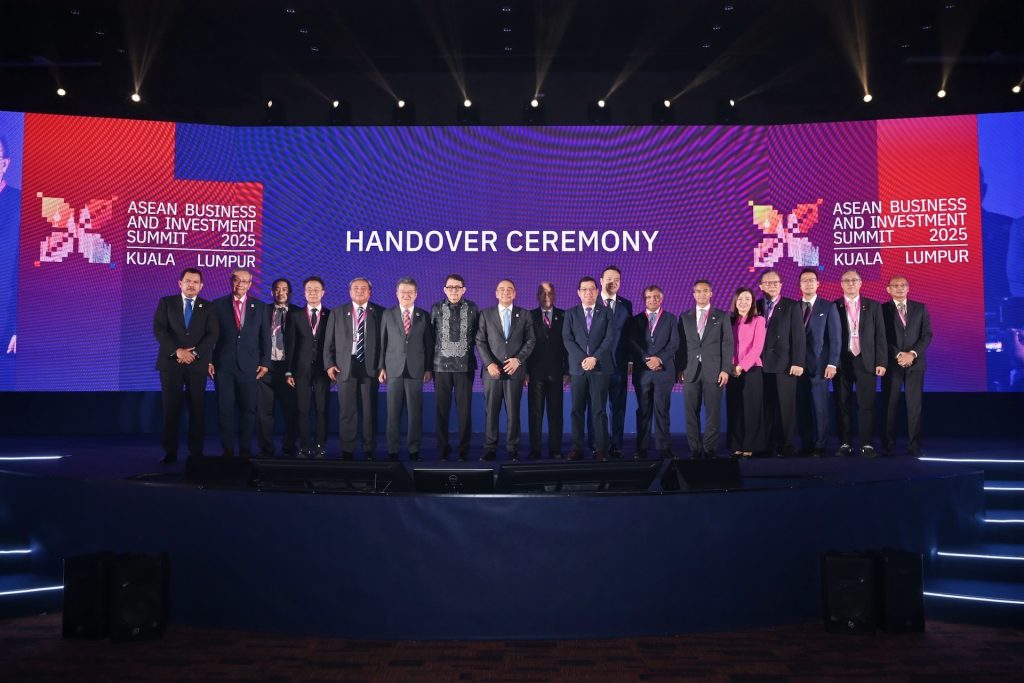
Rebuilding Trust Through Inclusive Growth
October 28, 2025
Creating a Blueprint for Thriving Asean MSME Sector in 2026
November 10, 2025
Navigating Toward a Prosperous Future Together
The Philippines will begin its chairship of the ASEAN in January 2026. For this, the Philippines has chosen the theme “Navigating Our Future Together.” In his acceptance speech at the recently concluded 47th ASEAN Summit and Related Summits, President Ferdinand Marcos Jr. likened ASEAN to a ship setting full sail toward a shared horizon – anchored in peace, strengthened by prosperity and guided by the empowerment of its people. He further remarked that as the Philippines takes the helm, it will work to ensure that ASEAN’s integration agenda translates to real opportunities for businesses to grow, for communities to thrive and for progress to be inclusive, sustainable and shared by all.
As in the Philippines, peace, prosperity and people’s empowerment are crucial to advancing the regional economy. Being an avid sailing fan myself, it resonates with me that the Philippines has chosen a nautical metaphor for its theme. For a ship to arrive at the intended port, it needs its crew to work together toward an agreed direction. All members of the crew are important in the task because not one person alone can bring a ship to harbor, let alone navigate towards its goal.
Beyond the teamwork implied in the theme, one can also reflect upon its significance. Great civilizations have thrived around shared bodies of water. They used these not just for transport but also for trade and cultural exchange. The Mediterranean Sea saw the thriving of the Greeks, the Roman Empire and even until the Ottoman Empire. Seabound merchants and travelers in the Indian Ocean connected the Middle East to East Africa, India and Southeast Asia. And in Southeast Asia, you have the West Philippine Sea, where, for centuries, our ancestors from what we now know as the Philippines, Brunei, China, Indonesia, Malaysia, Taiwan and Vietnam traveled and traded freely with each other. The seas represent the collective future of peoples, not just of nations. We can only truly grow if we work together and with each other.
Southeast Asia, especially, boasts of remarkable diversity, making it one of the most varied regions in the world. We must encourage an environment that celebrates this richness and elevates emerging perspectives. In today’s digital landscape, more crucially, true inclusion involves recognizing and appreciating the multitude of experiences we possess. When all individuals are empowered to participate and flourish, our communities and economies grow stronger and more dynamic.
In my years of serving as the chair of the ASEAN-Business Advisory Council (ASEAN–BAC) Philippines, I have always believed that ASEAN-BAC is a powerful platform to bring about change because it harnesses the power of the private sector and works with governments to bring about inclusive and sustainable prosperity.
Meeting my peers from the ASEAN-BAC and connecting with partners from the private and public sectors during the ASEAN Business and Investment Summit (ABIS), which was held alongside the 47th ASEAN Summit and Related Summits, reinforced this conviction.
We had key meetings and a lively exchange of ideas on shared growth during the ASEAN Inclusive Growth Summit, where I spoke at a panel on how digital transformation can empower MSMEs and eventually bring us closer to a more inclusive and sustainable growth. I delivered the closing remarks at the ASEAN-Indo Pacific Forum, and had productive meetings with the ASEAN-BAC Singapore, the Business Council of Canada (where I was joined by DTI’s Sec. Cris Roque), the UK-ASEAN Business Council and with Mastercard, TikTok and AirAsia Move.
A proud moment for ASEAN-BAC Philippines was the ceremonial sendoff of durian seedlings from Malaysia to the Philippines. I’m proud to see how collaboration across ASEAN is bearing fruit, literally. The shipment of Malaysian Musang King (MSK) durian seedlings to the Philippines marks a milestone partnership between Malaysia’s Bornion Green and the Philippines’ Yovel East Research & Development, Inc. MSK durian is considered premium and can cost three times as much as most durian sold in Asia today.
This is the first project under the ASEAN Food Security Alliance (AFSA) to move from paper to plantation. Beyond the seedlings, this effort empowers farmers, creates jobs and strengthens our region’s food security and agripreneurship.
The grand finale, however, was the closing of the ABIS, where we held the Handover Ceremonies and I accepted the 2026 chairship of ASEAN-BAC from the 2025 chair, ASEAN-BAC Malaysia’s Tan Sri Nazir Razak. ASEAN-BAC Malaysia presided over the year with such purpose and proficiency, making them a truly tough act to follow.
In my remarks upon acceptance of the chairship, I again shared the private sector concept of big-brother companies helping out the less fortunate, and how this can also apply to the ASEAN region, where the wealthy countries help out their neighbors. It comes especially at a critical moment when our newest ASEAN member, Timor-Leste, tips the scales between the haves and have-nots among the countries of ASEAN.
It will be an exciting year ahead.
Originally Published in Philippine Star


2/F RFM Corporate Center, Pioneer cor. Sheridan Sts. Mandaluyong City, Metro Manila, Philippines

